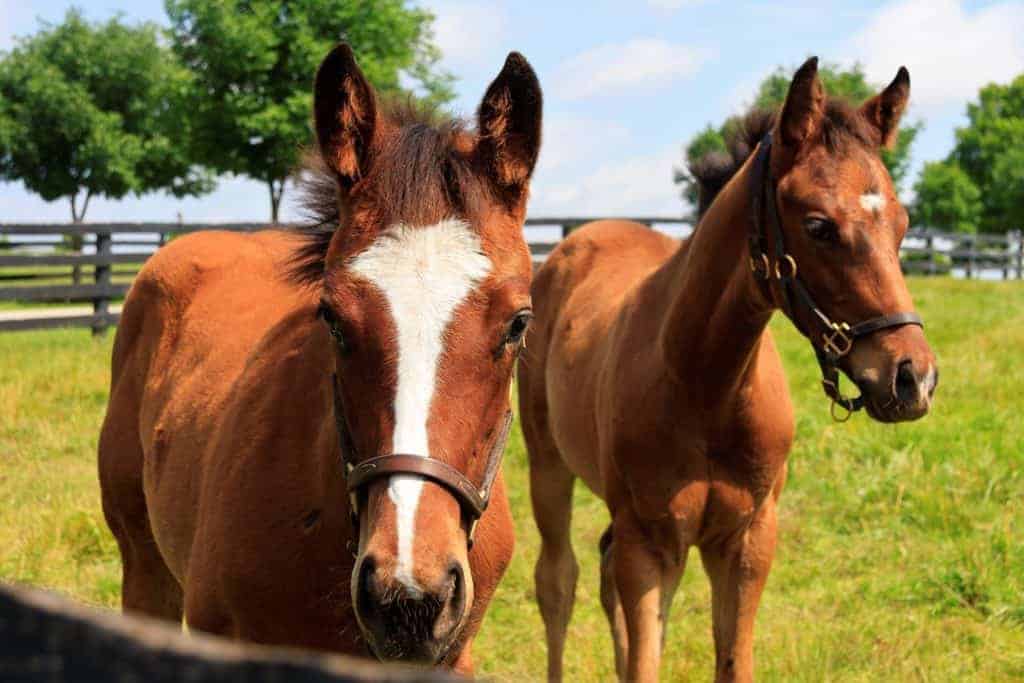
Fetlock Injuries in Racehorses
Learn about the signs, diagnosis, and management of repetitive stress-related fetlock injuries in racehorses.
News and issues for equine health professionals

Learn about the signs, diagnosis, and management of repetitive stress-related fetlock injuries in racehorses.

A low-starch, fiber-based diet can help manage equine gastric ulcer syndrome after medical treatment is stopped.
The American and International Associations of Professional Farriers created the award in honor of Dr. Frank Gravlee.

Regular dental checkups will protect your horse’s overall health, comfort, and well-being. Here are the basics.

From 1995 to 2014, the OIE received reports of 54 disease events associated with international horse movement.

Using their “check-before-treat” program, scientists are finding record-low equine parasite burdens in Switzerland.

Genetic and genomic research could help veterinarians diagnose disease early and select more targeted treatments.

Find tips on managing and preventing a “perfect storm” of infectious disease spread at horse competition facilities.

Find out how veterinarians diagnose this highly contagious disease in both acute cases and long-term carrier horses.

Researchers are looking at how diet might influence how horses respond to stress and disease.

A dedicated team of professionals at UC Davis work around the clock to help newborns beat the odds.

Researchers proposed a conceptual model to optimize the welfare of horses used for veterinary teaching programs.

Learn how veterinarians treated an 18-month-old Andalusian colt that suffered nasal collapse after a training accident.

Ivermectin was ineffective in treating pinworms in a herd of Welsh ponies. Fenbendazole, however, eliminated the worms.

A study found little difference in gait between shoes, although shod horses moved differently than barefoot ones.

Of the 359 respondents, 101 (28%) said their hoof care professionals use radiographs to make trimming/shoeing decisions.
Stay on top of the most recent Horse Health news with
"*" indicates required fields